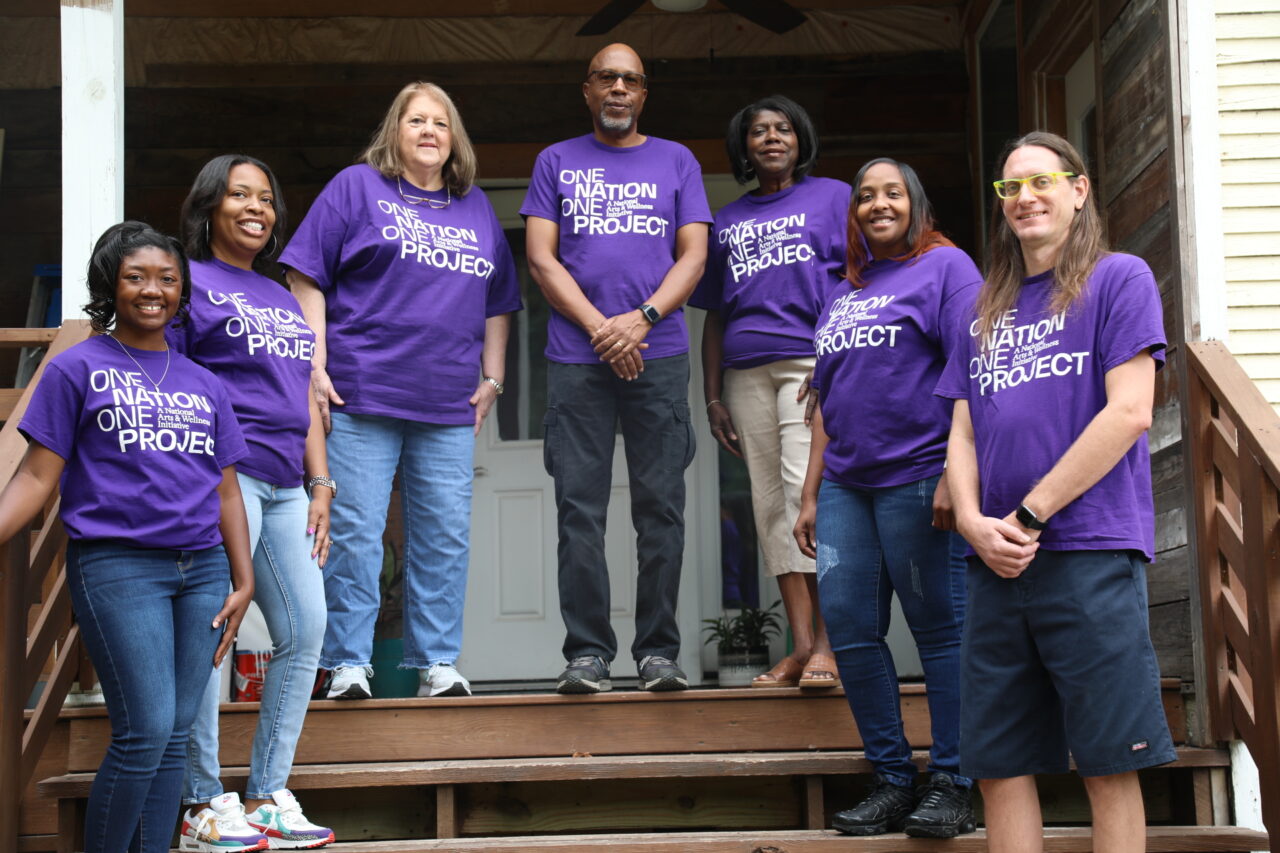Co-authored with Daniel Johnson, Artist, Significant Developments, Principal Artist
Like too many small towns, Utica, Mississippi (population 633) has no grocery store. Residents must drive to other cities to access basic grocery items. To address this food access issue, members of the community are organizing to explore possibilities for increasing food access in Utica via collective purchasing, supported by a partnership between the Utica municipal government and The Mississippi Center for Cultural Production, also known as Sipp Culture .
Sipp Culture is a local cultural organization that operates a community farm and CSA program. According to their website, they’re dedicated to, “strengthening our local food system, advancing health equity, and supporting rural artistic voices – while activating the power of story – all to promote the legacy and vision of our hometown.” The partnership illustrates how organizations like Sipp Culture can help local governments of all sizes engage residents and improve health outcomes.
The Town of Utica, Sipp Culture, and the Jackson-Hinds Comprehensive Health Center are partnering to participate in Arts for EveryBody – an initiative of One Nation One Project (ONOP) in partnership with NLC. As part of this partnership, Sipp Culture established a Community Advisory Group to determine all projects that would come out of the initiative. The Utica Food Club consists of community members who are interested in pooling their resources to access fresh food locally.
The Utica Food Club was spurred by Community Advisory Group member James Owens, a local pastor and business owner, who proposed the idea of a grocery cooperative to the group.
There’s a lot of things we can do within our community if we would work together. In Utica, there’s not a lot of jobs so people go other places to work, and there’s a tendency to buy food where you work. But if the community is invested, the local grocery store will have a better chance of surviving.
James Owens, Pastor and Business Owner
Owens said that small local governments can assist local efforts, such as in Utica, by providing space to store and distribute grocery co-op products.

Utica Food Buying Club Process
- Hold an interest group meeting. The Community Advisory Group decided that the Utica Food Club would be an ONOP Utica initiative, believing that the idea of cooperative grocery stores seemed more likely for a town like Utica than expecting a large retailer to move in. At the first meeting of the Interest Group, the arts and culture, agriculture, business, education, and local government sectors were represented.
- Determine where people currently shop and what drives decision-making. Utica residents drive to cities between 15 minutes and 1 hour away for meat and produce. Fresh vegetables and quality meat are big drivers in deciding where to shop when convenience is not a priority.
- Research potential models. The Utica Food Club’s Cultural Strategist Daniel Johnson shared the story of the Rainbow Whole Foods Co-Op in Jackson, MS, how they were founded, and some of the challenges they faced before going bankrupt over 40 years later.
- Identify staple supplies for future collective purchases. The Utica Food Club identified that common staples include flour, cornmeal, sugar, salt, eggs, milk, butter, olive & canola oil, baking powder, yeast, coffee, cereal, rice, pasta, beans, legumes, grits, bread, sandwich meat, lettuce, tomatoes, lemons, Jiffy cornbread mix, spam, bacon, ground meats, canned chicken & tuna, sardines in water, tortillas, honey, jams, hard cheeses and condiments.
- Determine alternative options for access. Utica is exploring collective purchases from direct producer relationships (with egg and cattle farmers, dairies, co-ops, etc.), working with grocery suppliers, and identifying retail close-out sales.
- Group education and information exchange. A community member shared coupon cutting and other strategies for reducing food costs, and several ways to preserve large quantities of food. The assembled group encouraged her to host workshops.
- Seek additional resources and identify community support. The Utica Food Club is determined to seek financial support or guidance from organizations such as the FDA, the US Department of Agriculture GusNIP program, and regional co-op support organizations. They intend to gain support and recruit members to their group from local churches.
Sipp Culture is working on multiple fronts to increase food access in Utica. The organization is building a Main Street Cultural Center in downtown Utica, which will open in the summer or fall of 2024. The cultural center will include a large commercial kitchen with storage, which could accommodate rotating items from the Utica Food Club and also turn bulk produce purchases into value-added goods like sauces, salsas, and jams to divide among the group.
At the core of Utica, a rural Mississippi town in the southwest corner of Hinds County, lies this undeniable truth: access to fresh food is not only a necessity; it is a fundamental right. Acknowledging this, the Town of Utica has forged a partnership with the Mississippi Center for Cultural Production (Sipp Culture). Utica and Sipp Culture are not just advocating for access to fresh food but also cultivating an environment and community where every resident can thrive.
Utica Town Alderman Calvin Williams
The partnerships in Utica, MS, show how cities, residents, and their partner organizations can work together to find food access solutions.
Resources
Learn more about federal resources to support partnerships for fresh food access in your city:
- The Food Donation Improvement Act of 2023 expands possibilities for cities to develop public-private partnerships to increase access to local fresh food.
- Learn about the 2023 Farm Bill reauthorization, and how this bill affects rural cities and towns.










